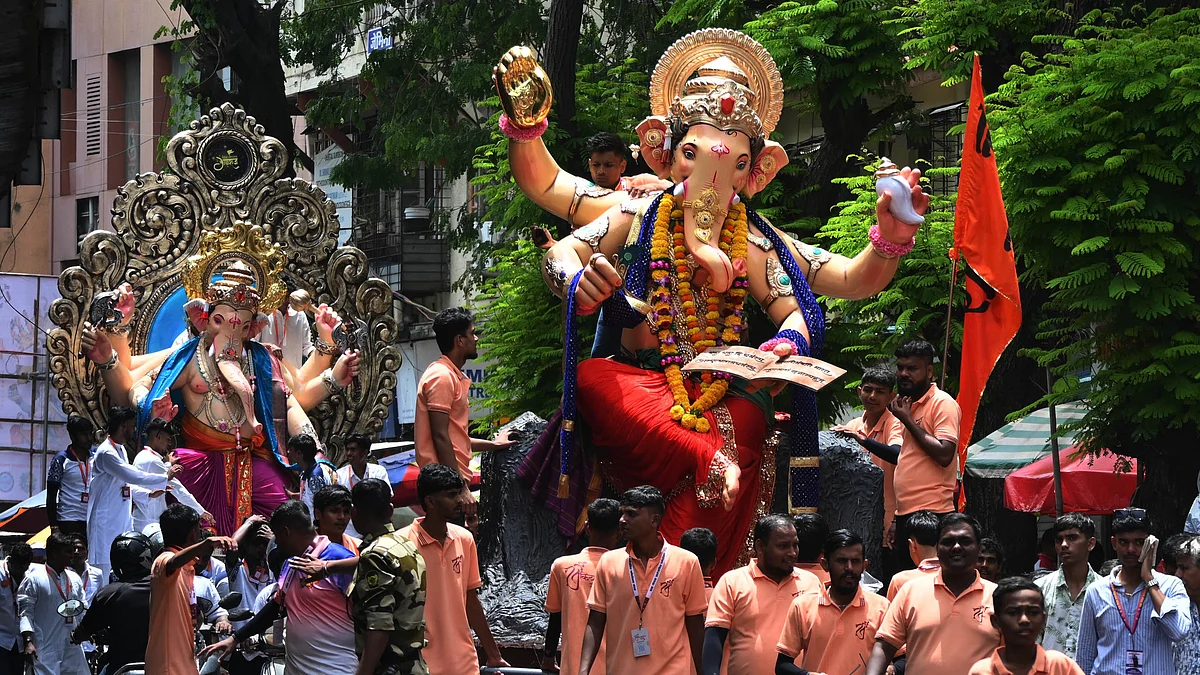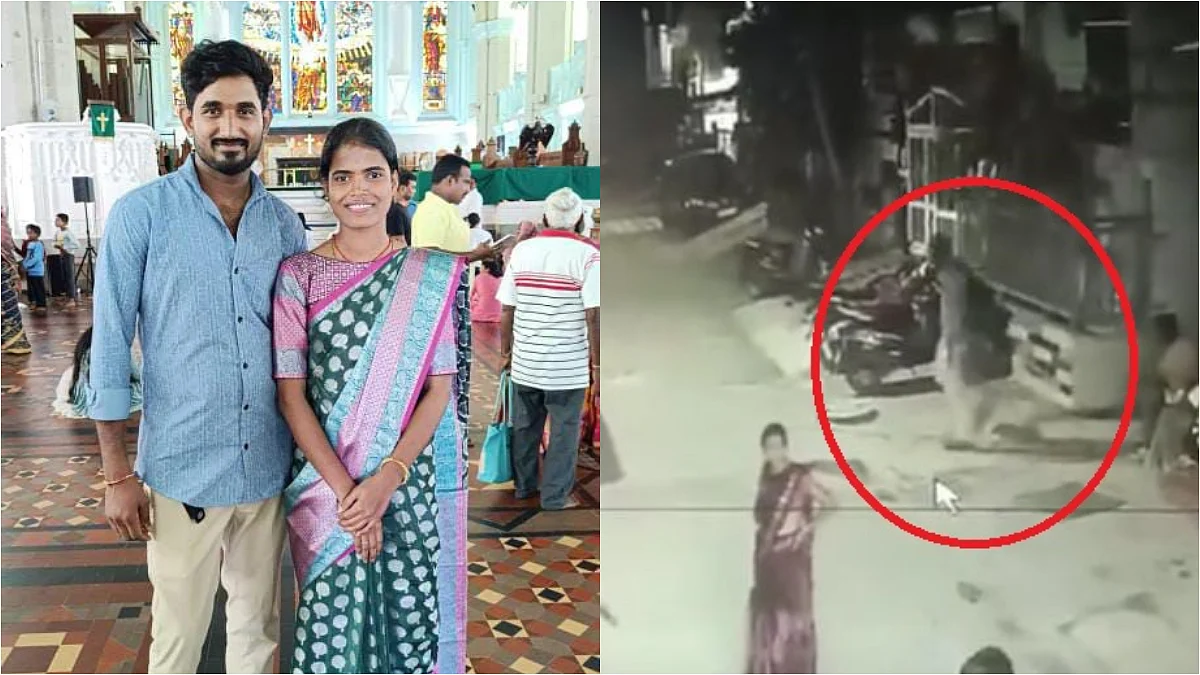The Bharatiya Janata Party’s campaign against ‘parivarwad’ stands on dubious foundations. Firstly, Indian society does not see ‘parivarwad’ as unethical. On the contrary, promoting family members is viewed as the primary duty of the patriarch. A father who does not do enough to set up his sons and daughters so they can have a good life is seen as a bad father. A good father is the one who spares no means to establish his children in life.
On August 28, Reliance Industries Ltd appointed the three children of its chairman Mukesh Ambani — Akash, Anant and Isha — as board directors. Mukesh said his three children would collaborate with other directors “to provide leadership to the Reliance group as a whole and guide the growth of all our diverse businesses.” This was a succession plan. What he had done was ‘parivarwad’. But there were no adverse comments from anyone in public life or media. We did not hear BJP leaders denounce it.
The Ambanis are not an exception in giving top leadership positions to family members. There would hardly be a business family in India where sons or daughters do not succeed their fathers. Every successful business is considered as a little kingdom and the crown always stays with the family. The legitimacy of succession rests on the belief that the son or daughter has the same leadership ability, energy and resilience as the father.
Secondly, the BJP campaign is based on a wrong premise that there is no space for merit in ‘parivarwad’. Mukesh Ambani succeeds, Anil Ambani fails. Both were sons of Dhirubhai Ambani. How did one turn anything he touched into gold and another could not? The answer is: Mukesh had merit, Anil lacked it.
Let us take the example of Prithviraj Kapoor’s dynasty. His son Raj Kapoor did not become an iconic filmmaker and actor of Indian cinema by just sitting on the horse of lineage. He rode the horse in his own way. Of his three sons, Rajiv drowned as an actor, Randhir struggled to keep himself afloat, only Rishi proved to be a masterful swimmer. The simple reason was Rishi had merit, the other two lacked it.
Dynastic succession is common not only in the fields of business and cinema but also in agriculture, medicine, law and traditional crafts such as goldsmithing and carpentry. Fathers do adhere to their duty of setting up their children in all fields. Yet lineage alone does not help the children. They have to have the merit to compete with others to succeed. These others may include their siblings, successors from other dynasties and a vast number of those who have no advantage of lineage and are trying to carve a space for themselves purely on the basis of their merit.
Sure, lineage gives the successors a starting advantage. People know their names and faces. They also start with a presumption that they have similar abilities as their parents. The son or daughter of a famous producer, director or actor in the cinema is thus seen much more favourably as a debutant than someone from an unknown family. But they lose their starting advantage if they do not have merit. People reject them.
Thirdly, the BJP campaign against ‘parivarwad’ restricts itself to the field of politics. As we saw above, ‘parivarwad’ is not limited to politics. It is pervasive. The BJP campaign stands on weak legs here. Something that is bad in politics cannot be good in other occupations. If the BJP wants to eliminate ‘parivarwad’ it has to eliminate it from all fields. It has the majority in Parliament. It can pass an anti-dynasty law to ban dynastic succession in all walks of life— politics, business, medicine, media, law, farming and others—and permit selection only on merit.
Fourthly, the BJP campaign does not merely restrict ‘parivarwad’ to politics but also restricts the definition of ‘parivarwad’ in order to absolve itself of its own indulgence in it. If the son or daughter of a politician becomes an MLA or MP, it is not ‘parivarwad’, says the party. But if he or she becomes chief minister or prime minister, it is ‘parivarwad’. This is the definition given on behalf of the party by former Union law minister Ravi Shankar Prasad. This definition is tailored to suit the party. The party has a good number of successors as lawmakers in state legislatures and in Parliament. In the current Parliament, sons of five former chief ministers—Anurag Thakur, Parvesh Verma, Dushyant Singh, BY Raghavendra and Rajbir Singh—are BJP MPs. Add to them the sons or daughters of former Union ministers—Pritam Munde, Poonam Mahajan, Jayant Sinha and Jyotiraditya Scindia. A study in 2020 found that as many as 45 of the 388 MPs of the BJP (11% of them) were dynastic successors.
Fifthly, the BJP further narrows its own narrow definition of ‘parivarwad — “Becoming an MLA or MP is not ‘parivarwad’ but becoming a chief minister or prime minister is” — to justify its open informal alliances with dynastic successors who are chief ministers such as Nabin Patnaik of Odisha and YS Jagmohan Reddy of Andhra Pradesh. Its diluted definition excludes friendly dynastic chief ministers from the sin of ‘parivarwad’ and includes only the dynastic chief ministers who are opposed to it. That makes it clear that the BJP is merely using ‘parivarwad’ as a slogan to smear, discredit, attack and defeat the hostile dynastic chief ministers and grab the political spaces they occupy.
The BJP likens ‘parivarwad’ to a disease, an evil. Prime Minister Narendra Modi has listed it as one of the three evils — the other two being corruption and appeasement — that must ‘quit India’. But from their extremely narrow definition of ‘parivarwad’ it is obvious that their campaign is not aimed to establish the kingdom of merit in all fields. It is not even aimed to establish the kingdom of merit in politics. It is aimed to establish the kingdom of the BJP in politics.
(Arun Sinha is a journalist and writer)











